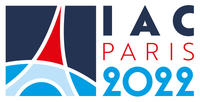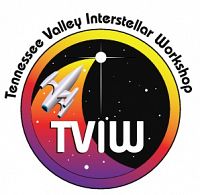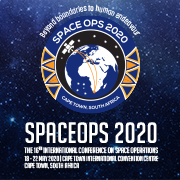›Tennessee Valley Interstellar Workshop 2016
Tennessee Valley Interstellar Workshop 2016 Symposium
February 28 - March 2, 2016
Chattanooga Choo-Choo Hotel
Chattanooga, Tennessee
“From Iron Horse to Worldship: Becoming an Interstellar Civilization”
Call for Participation Now Open
Working Track Proposals: OPEN
Plenary Talk Proposals: OPEN
Other Content Proposals: OPEN
Admissions: NOT YET
Registration: NOT YET
Calendar
The full calendar is in its early stages of completion. As we get closer to the meeting date, we will fill in more of the calendar items.
2015 April 13. Call for Participation goes out. Start accepting proposals for Meeting content.
2015 June 15. Proposals for Working Tracks are due.
2015 August 16. All content proposals are due. Snapshots of candidate working tracks taken for evaluation.
2015 November 1. Last date by which the Program Committee will issue acceptances and rejections.
2016 February 28 - March 2. TVIW 2016 Symposium
Participate in the TVIW 2016 Symposium
There are several different ways you can participate in the TVIW 2016 Symposium.
Speak and Write
Please read our Call for Participation for TVIW 2016 Symposium , if you haven't already done so. It contains further information, more than the brief summary here.
Propose a Working Track. A collaborative, small-group discussions about a set of interdisciplinary questions.
Propose a Plenary Talk. Traditional papers, lectures, and presentations.
Propose Other Content. Anything not explicitly mentioned above.
Attend and Interact
We will be opening admissions for the TVIW 2016 Symposium in July. Please stay tuned.
Volunteer and Help
We have several kinds of opportunities to volunteer as staff for TVIW 2016. Volunteer for one or all of them!
Registration. Do you want to meet all the participants as they arrive? Join us at the Registration Desk! This will involve sitting at the Registration/Information Desk for a couple of hours at a time.
Facilities. Help with setting up the A/V infrastructure for the plenary sessions, microphones, etc.
Recording. Help with the recording, live streaming to the Web, still photography.
Hospitality Suite. You want to hang out with the amazing and knowledgeable participants? Come help in the Hospitality Suite. This will involve being in the Suite when the plenary and track sessions are happening, and after hours into the night.
If you are interested, please contact Martha Knowles, our Volunteer Coordinator, at volunteer-2016@tviw.us.
Working Tracks
At its most basic, a Working Track is a small group of people wrestling with a set of questions. The questions should be, at minimum, interesting, because no one wants to talk about uninteresting questions. The questions should be open questions, difficult questions, perhaps even not-fully-formed questions. The questions should be amenable to a group collaboration, indeed, may even require it.
A Working Track succeeds when its participants enjoy their time together. That said, it is rare that a group of intelligent, thoughtful, and engaged collaborators fail to make progress on a question when they spend some quality time on it. Progress need not mean an answer; that's too high a bar. Progress means new understanding about the question, be it partial results, new insights as to why a question is hard, or identification of blind alley. Progress also, though, means new questions to ask. If it should so happen, answers would be great, too.
It is also rare that a group of people who have enjoyed their time together are content with letting it suddenly end without continuation. TVIW hopes that Working Tracks will spawn further collaborations. One such group from TVIW 2014 is nascently forming; expect further announcements later this year.
Working Track Calendar
The calender for Working Tracks is more complicated than for a Plenary Talk, because Working Tracks need development. For what we mean by development, read below. We've put the track calendar up front here for ready reference.
2015 April 13. TVIW begins accepting Working Track proposals. Nothing special here; this is when we open up for all content proposals.
Initial Development Period. As soon as we receive a Working Track proposal, we'll start developing it with you. The sooner the proposal, the more time in development, the more mature the candidate before deadline.
2015 June 15. Proposals for Working Tracks are due. At this point we won't accept any new track proposals. We will, however, continue to work on existing ones, even though they'll change in the process.
Interim Development Period. For a limited period of time, we'll continue to develop all Working Track proposals. Even if you get a proposal in at the last minute, there will still be at least a little time to develop it.
2015 Date to be announced. End of Interim Period. At this time, we'll stop doing development and take a snapshot of all the current proposals.
Early Evaluation Period. TVIW staff will evaluate the Working Track proposals with an eye to making some early decisions.
2015 Date to be announced. Early Evaluation Decisions. TVIW may announce some early decisions on this date. Mostly likely is to reject the weakest proposals, with an eye to focusing on more promising candidates. We might even accept a particularly strong proposal; we'll see.
Final Development Period. Last phase of development work. We expect this period to focus most on people, both leaders and participants. The purpose of reserving a date for some early rejections is allow their people to migrate to other candidates.
2015 August 16. All content proposals are due.
Open Decision Period. The Program Committee will make final selections during this period, possibly not all at once.
2015 November 1. Final disposition of all proposals.
Proposing and Developing a Working Track
This section is specifically addressed those who would like to propose a Working Track. The concept is still somewhat new, and it's useful to set out our goals and hopes, so that our participants may end up with mutual expectations of each other that lead to felicitous outcomes. Even if you aren't planning to propose a track, you may as well want to read this, because it (implicitly) describes what goes on in a Working Track.
A Working Track is not the effort of a single individual but a group activity. As a result, Working Tracks do not spring into existence from the mind of any single person. Nevertheless, a group of people needs some kind of central subject to coalesce around, and so there remains a role for a coordinator, an initiator, a nexus, in short, a leader, but a leader with a certain styles and goals. Thus a Proposal for a Working Track should consider two things, both a suggested set of questions and an offer to act as the leader. So if you've got some questions and are willing to put in the effort, by all means send us your proposal.
Remember, though, that we're talking about a group activity. That group activity will begin as soon as you make your proposal. Together with TVIW, we'll be developing the proposal, fleshing it out, clarifying intentions, filling in gaps. If you've got the kernel of a solid idea, there are lots of ways to successfully explore it. We'll work with you to grow the idea into something that works for everyone. We've identified five areas of development we'll be focusing on.
1. Finding Technical Leads, Moderators, and Facilitators.
In the text above, we've used "leader" in the singular, which is cheating a little. We'd actually like co-leaders, and even then preferably from different perspectives. In addition to spreading the effort, there are different roles of leadership. A successful track needs some of each. A Technical Lead has the role of knowing the questions and the current best thinking about them. Moderators and Facilitators improve the discussion in different ways. Moderators say "no", keeping a discussion on topic and squelching inappropriate outbursts. Facilitators say "yes", eliciting long comments from short ones (and short comments from none), ensuring all have an opportunity to speak. Different people have different mixtures of these skills. We don't anticipate needing to assign strict roles, but we do want ensure we have sufficient capability in the leaders as a team.
Thus we intend to do some matchmaking amongst proposals. If you have a leadership team already in place, propose it. If you don't, make your proposal anyway. It's likely that others share your interests or at least have enough overlap to find common ground. TVIW will act as matchmaking coordinator, but not as a matchmaker; you'll still have to work out some things yourselves.
2. Attracting Participants
There's one generic gap in all proposals: they don't arrive with two dozen participants already committed. Why would they? If they did, would they need TVIW at all? When your track proposal is mature enough, we'll be publishing it as a candidate to our participants. As the saying goes, we'll run the flag up the flagpole and see who salutes. We won't be making track proposals purely into a popularity contest; the Program Committee will still make final selections. Nevertheless, we do not want to divide the Symposium into tracks that are too small, and so we do want to ensure some initial interest.
3. Refining Questions
A good set of defining questions strikes a balance between being to narrow and idiosyncratic, on one hand, and being to broad and diffuse, on the other. We will work with you to refine your questions to avoid both hazards.
On the too personal side, the questions you propose will be the questions as they are meaningful to you. They may not be questions that appear, on the surface, to be meaningful to others. There many ways to explore a question. Your preferred way may not be the preferred way of another. In this case, we'll broaden the questions to create a ground large enough for a multiplicity of viewpoints.
On the too impersonal side, the questions you propose may be stated too broadly to be able to have a focused discussion. We expect you do have some more specific ideas, some more targeted questions, some kinds of priorities. In this case, we'll narrow the questions to something important, urgent, and specific enough to engage others around an identifiable topic of conversation.
4. Setting Expections for the Preparation of Participants
Great conversation proceeds from some kind of shared understanding. Since participants come to the symposium from diverse backgrounds, we can't expect that they share any particular thing beforehand. We want to set expectations on the participants for a certain amount of advance preparation, and thus create the expectation that there is some common ground when the Symposium begins. In practice, this is most easily done by developing a reading list, but we are open to any method to create common ground. (Perhaps a viewing list, or attending a MOOC, or ...)
5. Anticipating Next Steps after the Symposium
Moving a field forward requires all sorts of efforts. Some questions need intense work to crack a problem, and then that problem is solved. Some questions are more open-ended and encourage ongoing discussion. We don't have a prejudice about what kind of work happens in a Working Track, only that it be some kind of useful work. We are keenly aware of the hazards of devolving into merely a social club, and the solution to that is to identify some desired outcomes and follow-ons in advance. In the spirit of what we've said above, we don't want to require any specific outcome for success, only that there be some coherent thought about what comes next.
Contacts for the TVIW 2016 Symposium
We've set up a number of email addresses for various aspects of the Symposium. Using the appropriate address will help us answer your messages in a timely fashion.
program-committee-2016@tviw.us Proposals for Symposium content, questions about proposal status.
media-2016@tviw.us Inquiries from press, web, radio, and any other media. Public relations contact.
admissions-2016@tviw.us Attendance at the Symposium requires admission.
registrar-2016@tviw.us Once admitted, our registrar will handle all questions about your registration, payment, tickets for related events, etc.
venue-2016@tviw.us Questions about the Symposium hotel, travel arrangements, local transportation, etc. Tourism opportunities while you're in town.
volunteer-2016@tviw.us Volunteer your time to help the Symposium run smoothly. We have several kinds of opportunities here.
tviw-2016@tviw.us Everything not covered by a more specific address.
Track this event on your Apple calendar














 United States
United States